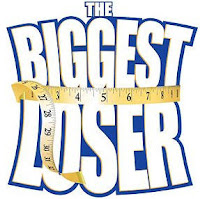We know the Biggest Loser is a very popular TV show, the numbers prove it.
But it doesn't take long to realize, this is a game show and these contestants are trying to win a cash price.
In fact, a New York Times article declared that instead of a weekly PSA for weight loss, the series is a ticking time bomb.
Ryan C. Benson, the first season winner who lost 122 of his initial 330 pounds, says his weight loss is the result of fasting and dehydrating himself until he urinated blood.
Dr. Charles Burant, a professor of internal medicine at the University of Michigan, was not surprised:
"I’m waiting for the first person to have a heart attack. I have had some patients who want to do the same thing, and I counsel them against it. I think the show is so exploitative. They are taking poor people who have severe weight problems whose real focus is trying to win the quarter-million dollars."
Kai Hibbard, the Season 3 runner-up said that after filming hours, she and other contestants drank as little water as possible and worked out wearing as many layers of clothing as they could find.
In the two weeks after the show, Hibbard claimed to have gained 31 pounds, just by drinking water again.
The Biggest Loser’s drill sergeant trainer, Jillian Michaels, agreed that the contestants put themselves at risk when they “get a little crazy” about losing weight, but maintained that there was a much different explanation on how the show can straddle the line between health consciousness and health endangerment: “It’s just part of the nature of reality TV.”
